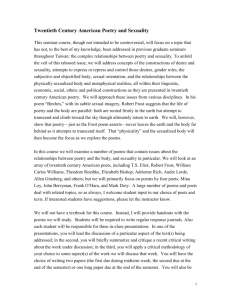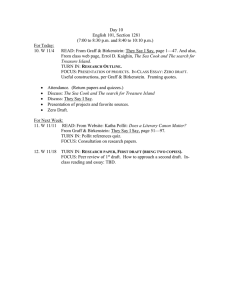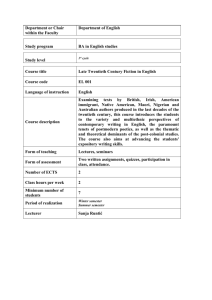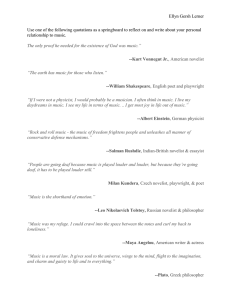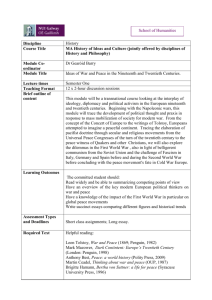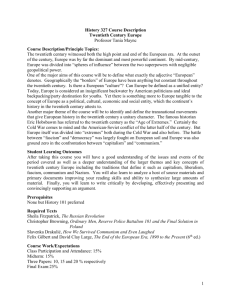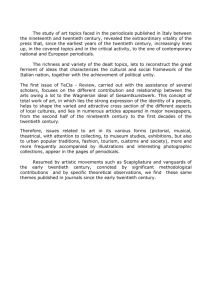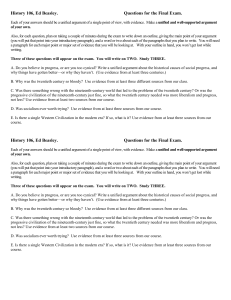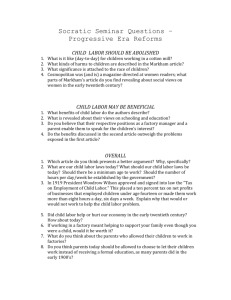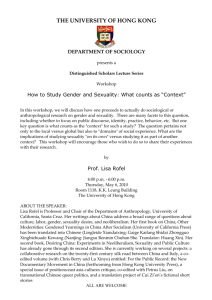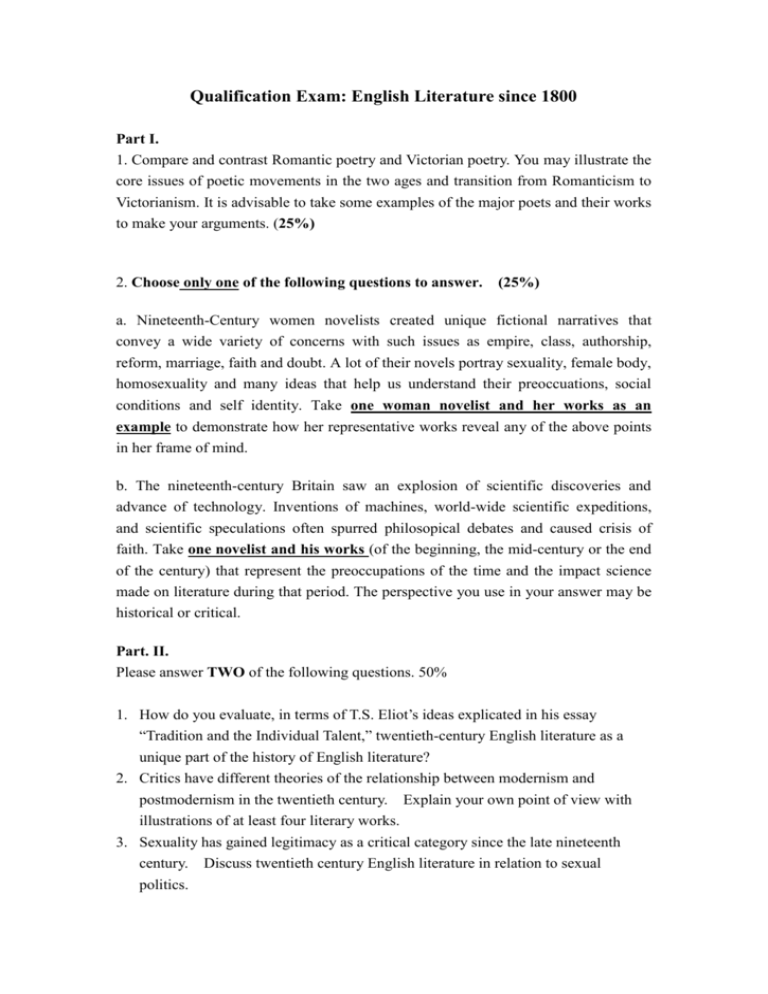
Qualification Exam: English Literature since 1800
Part I.
1. Compare and contrast Romantic poetry and Victorian poetry. You may illustrate the
core issues of poetic movements in the two ages and transition from Romanticism to
Victorianism. It is advisable to take some examples of the major poets and their works
to make your arguments. (25%)
2. Choose only one of the following questions to answer.
(25%)
a. Nineteenth-Century women novelists created unique fictional narratives that
convey a wide variety of concerns with such issues as empire, class, authorship,
reform, marriage, faith and doubt. A lot of their novels portray sexuality, female body,
homosexuality and many ideas that help us understand their preoccuations, social
conditions and self identity. Take one woman novelist and her works as an
example to demonstrate how her representative works reveal any of the above points
in her frame of mind.
b. The nineteenth-century Britain saw an explosion of scientific discoveries and
advance of technology. Inventions of machines, world-wide scientific expeditions,
and scientific speculations often spurred philosopical debates and caused crisis of
faith. Take one novelist and his works (of the beginning, the mid-century or the end
of the century) that represent the preoccupations of the time and the impact science
made on literature during that period. The perspective you use in your answer may be
historical or critical.
Part. II.
Please answer TWO of the following questions. 50%
1. How do you evaluate, in terms of T.S. Eliot’s ideas explicated in his essay
“Tradition and the Individual Talent,” twentieth-century English literature as a
unique part of the history of English literature?
2. Critics have different theories of the relationship between modernism and
postmodernism in the twentieth century. Explain your own point of view with
illustrations of at least four literary works.
3. Sexuality has gained legitimacy as a critical category since the late nineteenth
century. Discuss twentieth century English literature in relation to sexual
politics.

